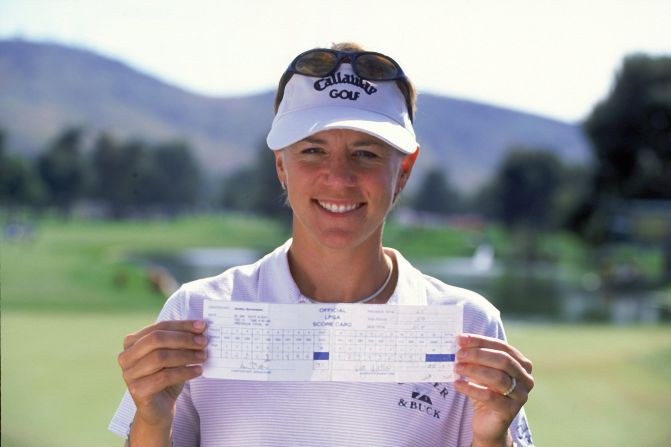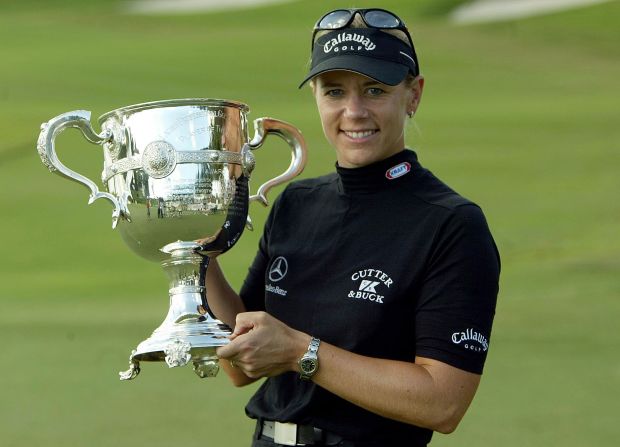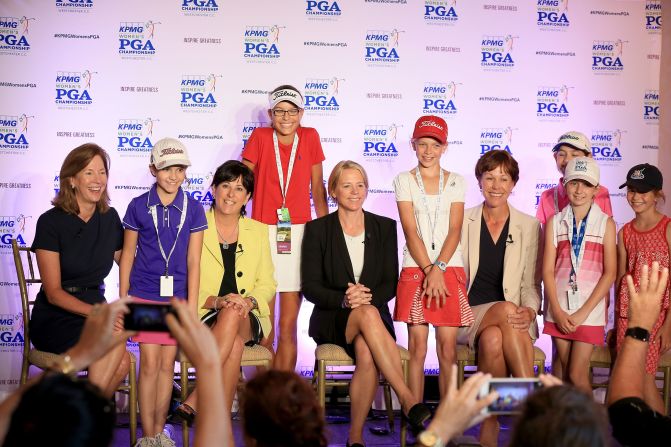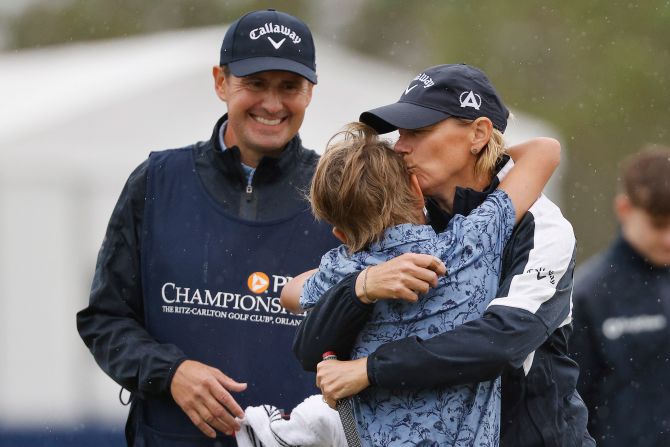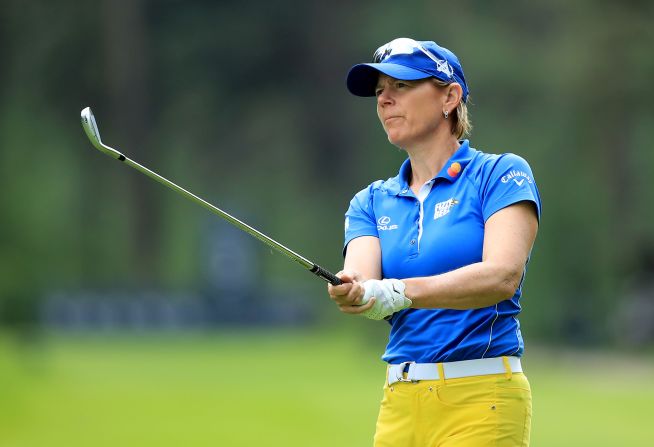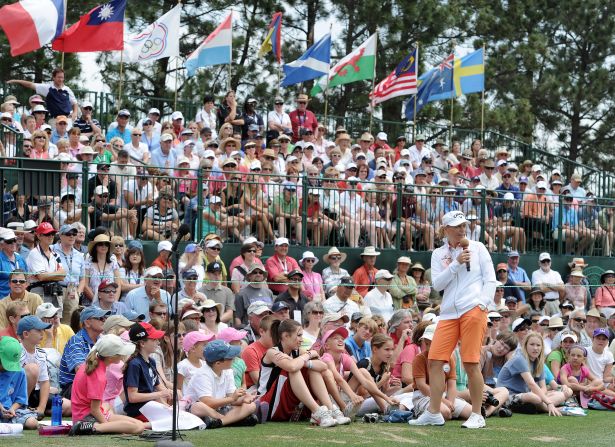It’s a crisp and sunny Sunday afternoon in Orlando, Florida – a perfect day to play a round on the more than 1,000 golf courses scattered across the Sunshine State. But Annika Sorenstam, arguably the greatest female golfer of all time, is instead playing a lighthearted putting game with her husband and two children in their Lake Nona backyard.
From Sorenstam’s historic 59 – the lowest-scoring game ever during a women’s competition – to her 90 international wins, her professional legacy is unmatched. Today, she’s working just as hard to give back to the sport that has given her so much.
Since retiring in 2008, the former pro has been prioritizing family, and her foundation – which focuses on supporting young women in golf. Much like the theme of this year’s International Women’s Day, Sorenstam believes investing in women will ensure their success, not just with golf, but with life.
“There’s no doubt that the girls that come through the foundation, they are great golfers, but many of them don’t go on to necessarily play professional golf, which is not really the purpose of the foundation,” Sorenstam recently told CNN during an interview at her Florida home. “It’s more to inspire them to fulfill their dreams. There’s a lot of opportunities for women in this sport.”
From humble beginnings to world champion
Before she was the golf “GOAT,” Sorenstam was just a young girl from the small town of Bro, Sweden, who played a lot of different sports, but was not exactly drawn to golf.
“Golf was really not something that was super exciting to me in the beginning,” she said. “I wanted a little bit more action, a little more speed.”
But living so close to a golf course, and being bribed to play by her parents offering ice cream to her and her sister Charlotta, she said she eventually started to enjoy the game and how it challenged her.
At 18, she won the World Amateur Championship and that’s when she realized she could pursue a career in the sport. She said she was also inspired by other women in golf at the time, like Nancy Lopez and Beth Daniel, adding how important it was to see that representation. When Liselotte Neumann, a Swedish pro golfer, won the US Open in 1988, Sorenstam said, “I was like, ‘wow, she has a similar background like I do, and so if she can do it, maybe there’s a chance I can do it.’”
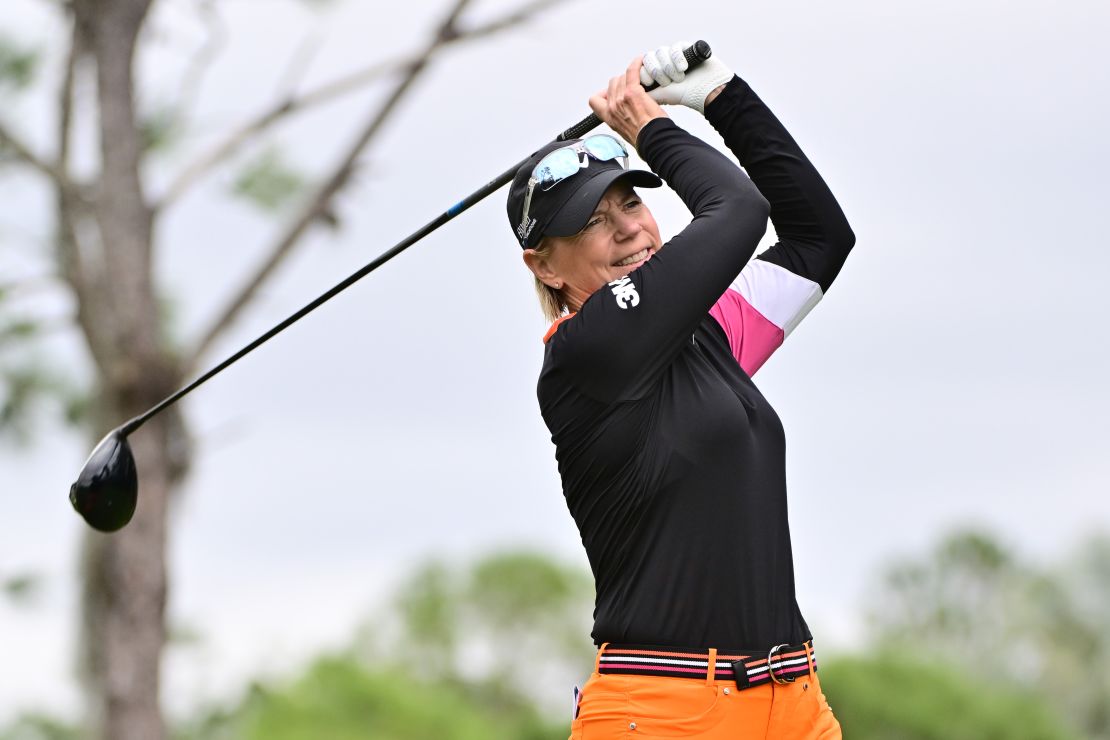
Cognizant of the disparities between men’s golf earnings and visibility compared to women’s when she went pro, Sorenstam said she was just so excited to get the chance to play that she didn’t think much about the gap. “I knew that women’s golf is going to grow and hopefully we will get there one day,” she said.
Little did the Swede know at the time that she would help usher in a new era of women’s golf – elevating the sport like never before.
Over her professional career, Sorenstam won 72 Ladies Professional Golf Association (LPGA) tournaments and 10 majors (plus?one senior major in 2021). She also received a record number of Rolex Player of the Year awards and Vare Trophies - given for the lowest scoring average during a season.
To date, she is the only female in history to break 60 in an official competition, which was a pivotal moment in her career in 2001.
“To be the first woman to do something, it gives you in this case credibility and a nice little nickname: ‘Miss 59,’” Sorenstam said, adding it’s about being able to “set the bar high … just keep working and you can break barriers.”
This accomplishment opened the door for her to play against the men at the 2003 Colonial, where she became the first female in over 50 years to play in a PGA event.
“I remember just being super excited. I remember just like, wow, I’m gonna push even harder,” she said. “I wanted to showcase that we can play, and it was a great experience.”
Giving back to the game
In 2008, at the age of 38, Sorenstam made the decision to walk away from competitive golf – but she’s never strayed far out of bounds. She began designing golf courses and golf clothing, while also setting up the ANNIKA Foundation, which aims to foster the next generation of women and girls in golf through clinics, tournaments, mentorship and financial support.
According to the National Golf Foundation, 38% of golfers under the age of 18 in the US are girls. When her foundation began, Sorenstam said that number was less than 20%.
“I really enjoy spending time with these young girls because I know what it’s like to be 14, 15 (years old), and having all these questions and dreams but don’t really know where to go,” she said. “To be able to get that guidance we feel is really important.”
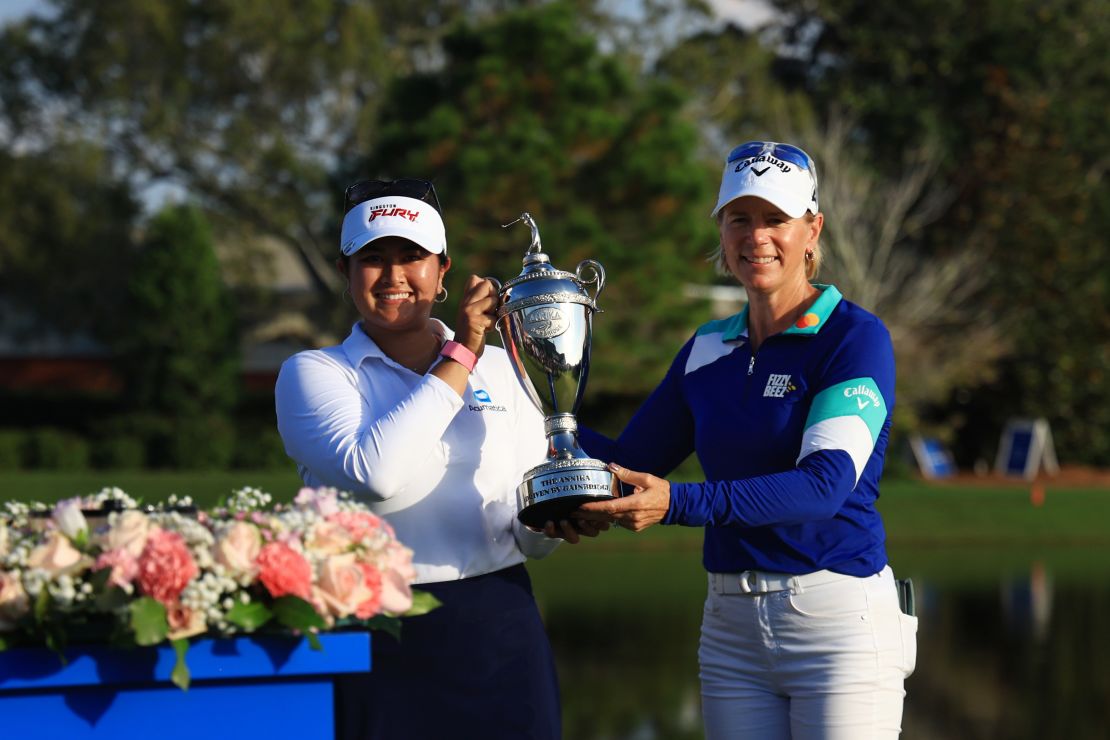
Annually, over 600 girls from 60 countries participate in the ANNIKA Foundation initiatives – ranging from major golf events to development programs, Sorenstam said, in addition to giving almost $9 million back to girls’ golf every year.
And she does all this alongside her husband, Mike McGee, who helps garner support from corporate sponsors.
“She gives back more than anybody I’ve ever seen,” he told CNN. “I’m blessed to get to work with Annika, she’s my boss literally and figuratively.”
McGee also helped secure Sorenstam’s name on her first namesake LPGA tournament in Tampa – THE ANNIKA driven by Gainbridge at Pelican.
Mollie Marcoux Samaan, commissioner of the LPGA, told CNN, “to have her name on that tournament is critical for the sport,” she said, adding that Sorenstam “is the LPGA in so many ways and we couldn’t be more grateful for the platform that she uses to inspire girls and women on and off the golf course.”
In the tournament’s first year, Louise Rydqvist, a Swedish amateur and US collegiate golfer who rose through Sorenstam’s foundation, had the opportunity to play – a “full circle” moment, Sorenstam said.
“(To) be able to fulfill her dream and then play in an LPGA event,” she added, “it feels obviously wonderful to be able to provide another playing opportunity, not just for the pros, but also for some of these upcoming players.”
Honoring a living legend
Katherine Muzi, a nascent professional golfer, was one of the first to partake in Sorenstam’s development program held at Old Barnwell in Aiken, South Carolina. There she received access for three years to the golf course, housing, financial assistance, training and mentorship from Sorenstam herself.
“(The program) really just opened the door,” Muzi told CNN at the ANNIKA Foundation’s first fundraiser of the year this February. “Just to be involved with anything with Annika, she’s really inspired me and so many girls playing golf. And I feel better just by being around her – she has that much of an impact.”
Held at the Country Club of Orlando, the event kicked off with the American Junior Golf Association (AJGA) presenting Sorenstam with the Digger Smith Award, which is given annually to a recipient devoted to the AJGA’s mission of developing young men and women through competitive junior golf.
But Sorenstam was quick to call McGee up to receive it with her. “It’s all team effort from start to finish,” she said.
Winning games and trophies are great, she added, but “to win a person’s heart, to win somebody’s inspiration, that weighs pretty heavy.”
Her influence is felt far beyond the course, as Ryleigh Knaub, a junior golfer, pointed out in an emotional tribute to the golf legend at the event: “Players like myself have seen you become a mother, a wife, a role model, an ambassador and a champion for girls all around the world just like me. You’ve shown it’s possible to seemingly have it all.”

